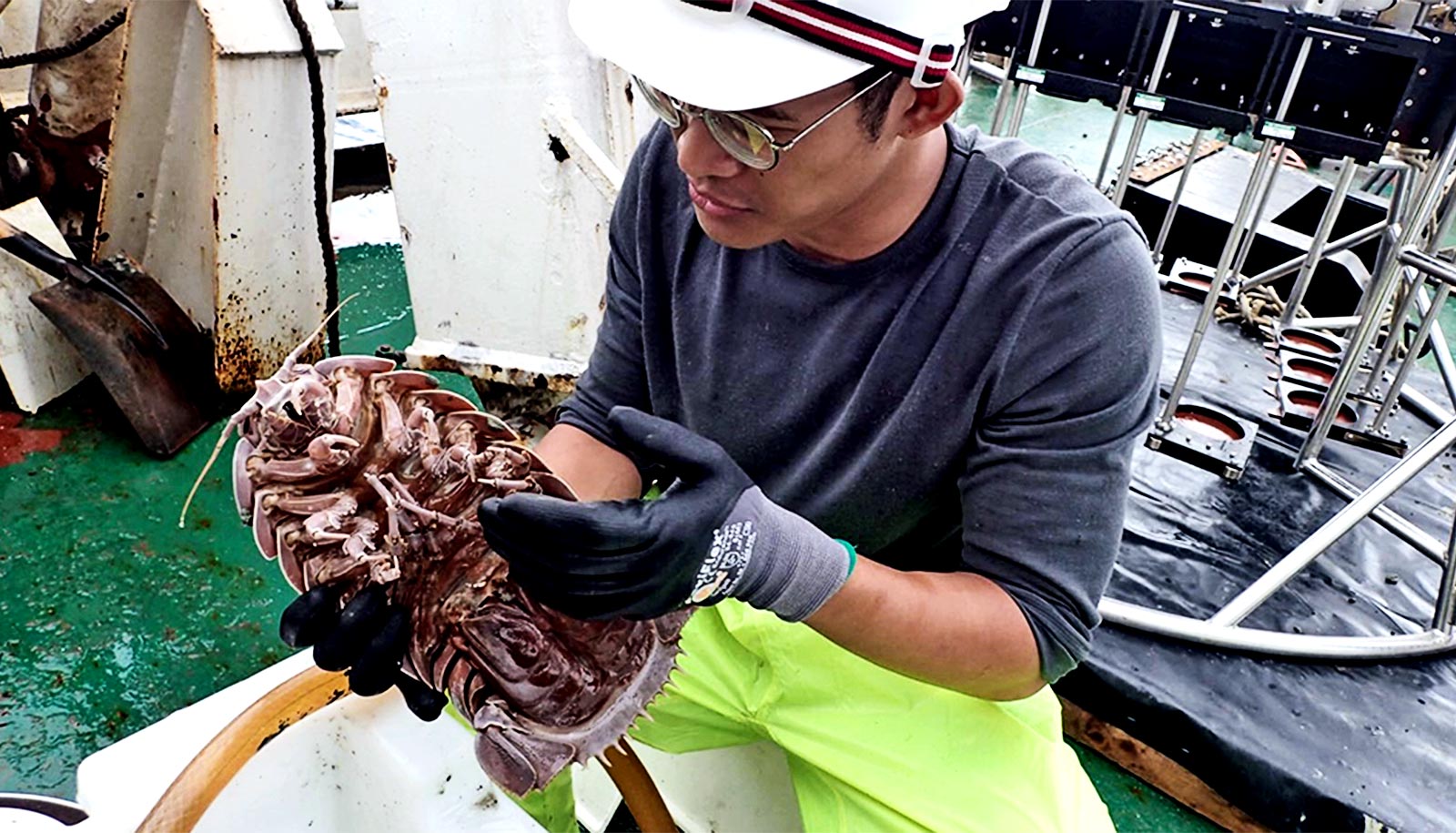
New deepsea isopod is shockingly large Futurity
Cubaris murina is a small terrestrial isopod measuring up around just 1cm in size. Sporting a lovely muted grey/purple coloration (with the occasional peach/orange spot at the rear), they certainly have their subtle charms.
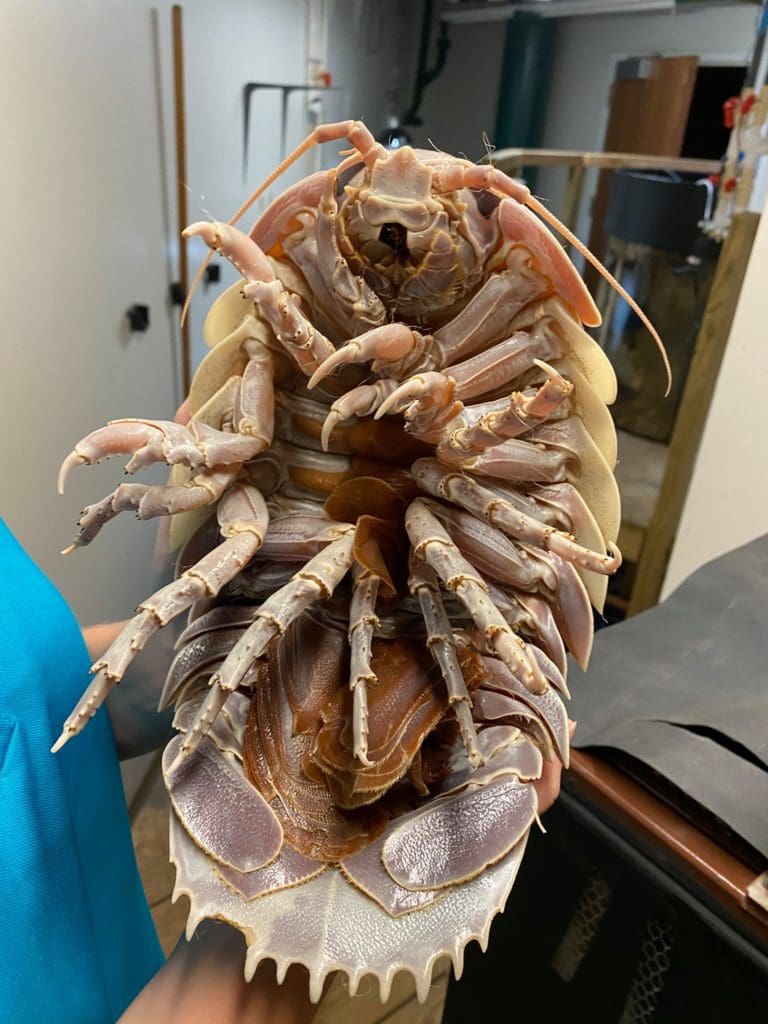
Virginia Living Museum Live Natural Education Meet the Giant Deep
2. Cubaris murina (Little Sea Isopods) The name (and look of) Cubaris murina gives me aquatic vibes? Cubaris murina has taken a different path. With their blueish, grey coloration, I wouldn't say they're the most visually striking Cubaris species (though they do have their subtle charms).

Cubaris murina ‘Little Sea’ Isopod Divide and Culture
"Little Sea" PERFECT Beginner Isopods. Roll over image to zoom in "Little Sea" PERFECT Beginner Isopods (Cubaris murina) 10-25 Count ★★★★★ 3 Rubber Ducky Isopods Perfect Beginner Cubaris (Wholesale): 10 10 25 Price: $24.49 Quantity: Add to cart Description Always FREE Standard Shipping! World Origin: Malay Archipelago
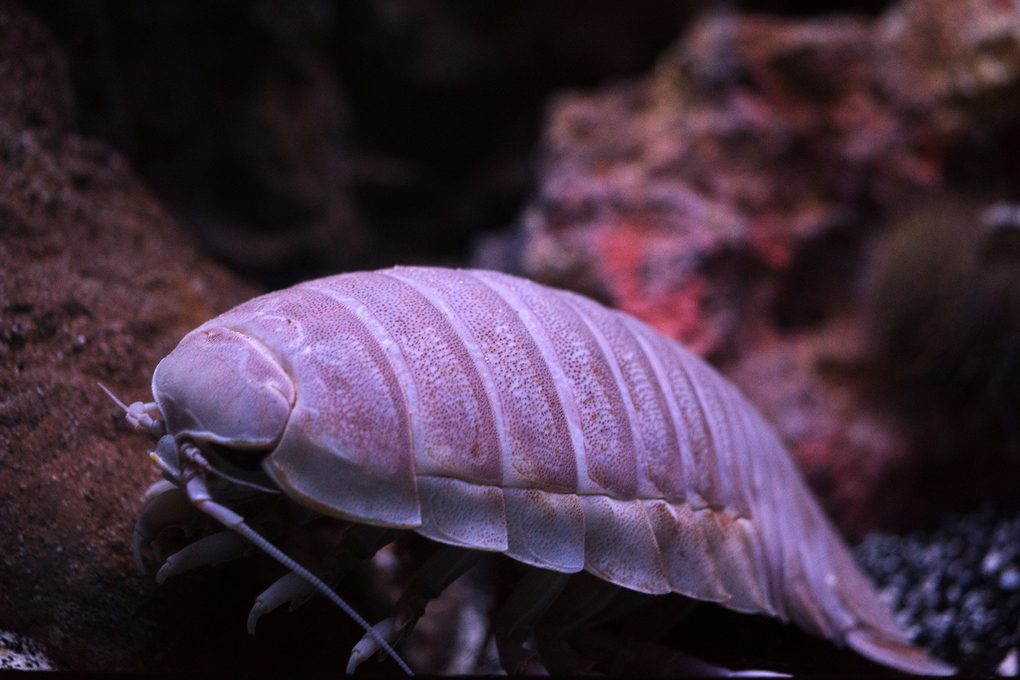
Giant Isopod The Living Aquarium
Little Sea Isopods are palish tan or grey colored isopods but don't let the meek color scheme mislead you on the active scavagers. They're one of two Cubaris isopods on this list that science has assigned the species name "murina" to. This mutation of Cubaris murina resembles a prehistoric deep sea crustacean when observed. But nonetheless, these guys are just as charming as Cubaris sp.

Cubaris murina 'Little Sea' Isopods DZD Herptiles
Cubaris murina 'Little Sea' Isopods are a species of woodlouse a terrestrial crustacean (Crustacea : Isopoda : Oniscidea) occurring within the family Armadillidae.. Unique species Non-burrowing Slow Reproduction Gray coloration Easy-to-maintain Bioactive Clean-up Crew

10 Ct Little Sea Isopod by Michiganda isopods MorphMarket
The cubaris murina isopod is a smaller sized species that belongs to the order isopoda. They are part of the family armadillidae because they can roll into a ball and are natively found in tropical regions. The cubaris murina was found and classified originally by German naturalist and entomologist Johann Friedrich von Brandt in 1831.

Cubaris murina "Little Sea" Isopods Roonami
Cubaris murina, also known as Little Sea isopods, has a translucent body with attractive embedded eyes. Taking care of Cubaris murina is relatively easy and simple compared to other isopods. Their breeding rate is very quick and impressive. Cubaris murina belongs to the family of Armadillidae and is also known as the little Sea Pillbug.

Monster Monday the Giant Isopod World Book
What Do Little Sea Isopods Look Like? Cubaris murina is a type of isopod, which is a small crustacean that belongs to the same family as crabs and shrimp. Some of the most common colors are pale white, yellowish-brown, and dark brown.

Cubaris murina ‘Little Sea’ Isopod Divide and Culture
Cubaris murina "Little Sea" isopods are relatively small (but cute!) isopods. They are a purplish gray with some orange accents. This is a slow growing species. Therefore I highly recommend culturing these separately if using in a bioactive setup with primary inhabitants that may snack on them. These isopods tend to like a lot of moisture.

Cubaris murina ‘Little Sea’ Isopod Divide and Culture
Cubaris murina 'Little Sea' is a small to medium sized isopod in the family Armadillidae that will growth up to 3/8" in length.These isopods will curl into a ball when threaten, but have a softer shell s than isopods in the genus Armadillidium. They will reproduce at a slow to moderate rate once established in your setup.

Giant Isopod Crustacean SIMILAR BUT DIFFERENT IN THE ANIMAL KINGDOM
Little Seas are a medium size isopod species and are fairly easy to take care of. They are great for bioactive setups and as pets. CARE INFORMATIONThey require a high humidity environment and should be watered and fed once a week. They eat yams or any root vegetables and fish food. (LIVE ARRIVAL GUARANTEED)

Giant Isopod
Breeding: They will reproduce with little help in well set up colonies. Natural Range : Native or introduced to most of the world In rare cases, starving isopods may attempt to consume the carapace of freshly molted invertebrates or even gnaw on small or delicate reptiles or amphibians.
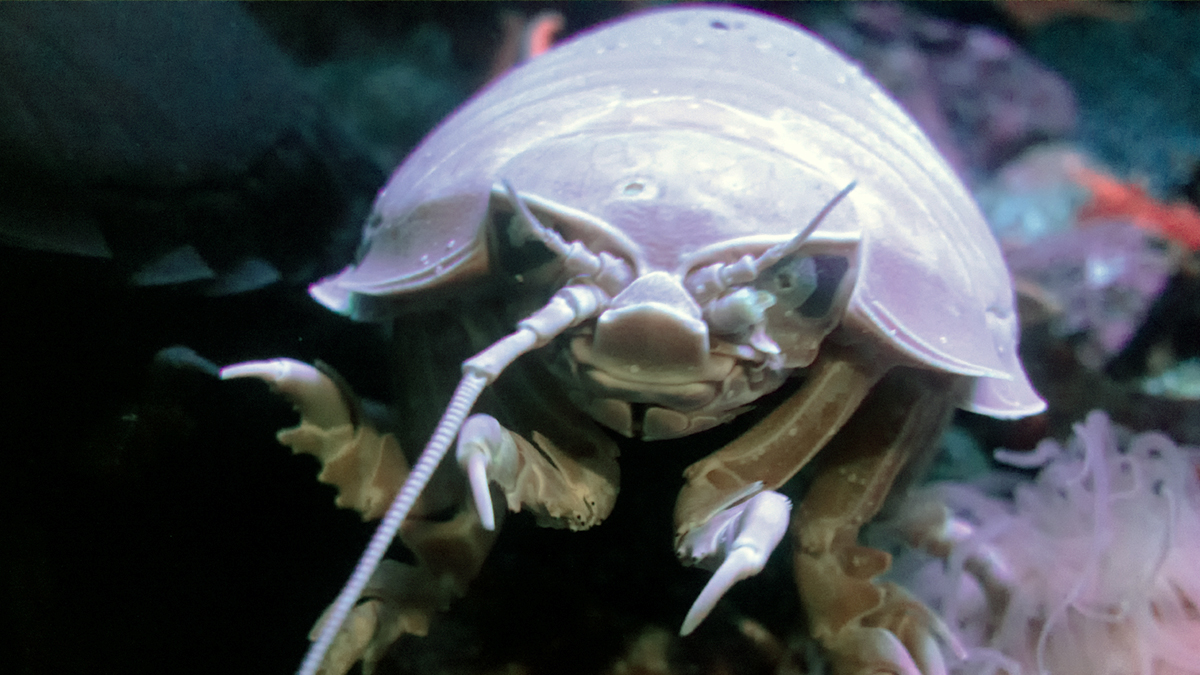
Giant Isopods Are the Animals Time
Little Sea Roly-Poly isopods are an excellent choice for vivariums and make a great occasional snack for poison dart frogs and other small animals. Little Sea Roly-Poly isopods have a softer body than some of the other species and have a much slower reproduction time.

Arthropoda Crustacea Malacostraca Isopoda Cirolanidae Life aquatic
Their price tag is attractive, too, with the Little Sea Isopod being a mere fraction of the cost of its sought-after cousin, the Rubber Ducky Isopod. Cubaris murina has two orange dots on her tail that look like taillights, and is usually a blackish brownish-gray color with a slightly frosted texture.

isopod Giant isopod, Crustaceans, Ocean creatures
Cubaris Murina "Little Sea" Isopods SKU: n/a. $ 14.99 - $ 149.99 Don't forget to add on Supplemental feed and a Habitat Kit for your bioactive isopods! Don't forget to add on Supplemental feed and a Habitat Kit for your bioactive isopods! Isopod Feed for healthy thriving pods!
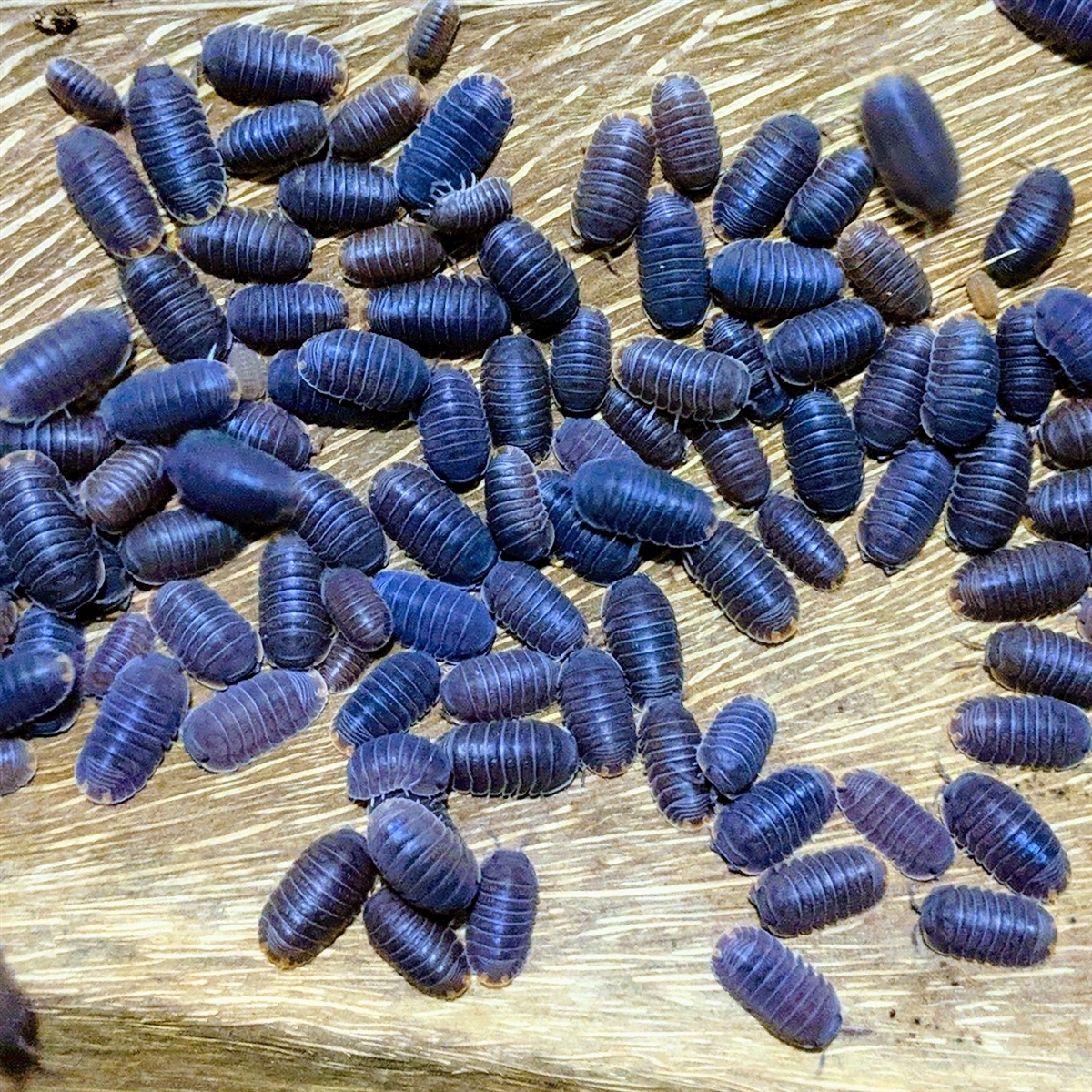
Cubaris murina 'Little Sea' Isopods GLASS BOX TROPICALS
INCLUDES: Live Isopods (choice of amount) Cup with Soil for shipping Summary: Isopod Cubaris sp. Murina, commonly known as "Little Sea," is a small species of isopod that originates from the Southeast Asian region. They are highly adaptable and have a unique appearance with a bluish-gray coloration. Care: Provide a